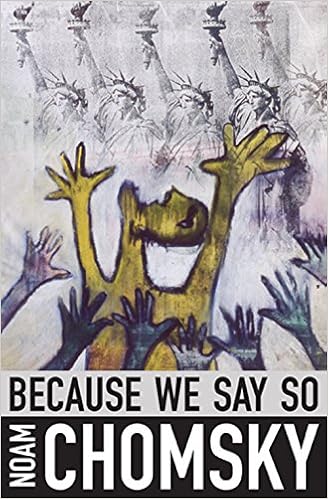
What Kind of Creatures Are We? (Columbia Themes in Philosophy)
Hardcover – December 15, 2015
Description
Chomsky's writings invariably reflect the force of intellect and cogency of thought that befits one of the greatest thinkers of our times―this work is no exception. -- Robert May, Distinguished Professor of Philosophy & Linguistics, University of California, DavisNoam Chomsky is arguably the most influential thinker of our time, having made seminal contributions to linguistics and philosophy, as well as political and social thought. In one succinct and powerfully argued volume, he presents a synthesis of his key ideas. -- Howard Gardner, Hobbs Professor of Cognition and Education, Harvard UniversityNoam Chomsky launches this remarkable discussion with the age old question, "What kind of creatures are we?" Thus begins an extended inquiry into human cognition that takes him from the ancients to contemporary theorists of language and science, to politics. Chomsky's erudition is formidable, and I read his disquisition with pleasure and many "aha' moments. But what stands out for me is his wisdom; he accepts that being mere biological creatures, there is much that we can never know, and yet he is deeply empathetic with us, his fellow creatures who must struggle and try to impact our world, even though we ultimately cannot know. -- Frances Fox Piven, Distinguished Professor of Political Science, Graduate Center of the City University of New YorkIt's always spring in Mr. Chomsky's garden. Like John Ashbery, Noam Chomsky seems to come up with thoughts that are always fresh, unaffected by the polluting clichés that most of us inhale and exhale all day and night. To read his sentences is a life-giving elixir. -- Wallace Shawn, author, Essays Engaging. ― Library Journal Recommended. ― Choice A rewarding and challenging read. ― PsycCritiques Differentiating between problems, which we can solve, and mysteries, which we cannot, Chomsky concludes that the relationship between brain and consciousness may well be a mystery. Still, we can explore. -- Jackson Lears ― London Review of Books This work is elemental; it touches and hints at some fundamental thoughts at the pivot of our existence and it invites the reader to pursue detailed studies of linguistics, hermeneutics, ethics, and metaphysics. Chomsky often speaks the mind of the readers. -- Editor ― Prabuddha Bharata Noam Chomsky is Institute Professor emeritus in the Department of Linguistics and Philosophy at the Massachusetts Institute of Technology and Laureate Professor of Linguistics and Agnese Nelms Haury Chair in the Program in Environment and Social Justice at the University of Arizona. He is the author of more than one hundred books, including The Science of Language (with James McGilvray, 2012) and Requiem for the American Dream (2017).
Features & Highlights
- Noam Chomsky is widely known and deeply admired for being the founder of modern linguistics, one of the founders of the field of cognitive science, and perhaps the most avidly read political theorist and commentator of our time. In these lectures, he presents a lifetime of philosophical reflection on all three of these areas of research, to which he has contributed for over half a century.In clear, precise, and nontechnical language, Chomsky elaborates on fifty years of scientific development in the study of language, sketching how his own work has implications for the origins of language, the close relations that language bears to thought, and its eventual biological basis. He expounds and criticizes many alternative theories, such as those that emphasize the social, the communicative, and the referential aspects of language. Chomsky reviews how new discoveries about language overcome what seemed to be highly problematic assumptions in the past. He also investigates the apparent scope and limits of human cognitive capacities and what the human mind can seriously investigate, in the light of history of science and philosophical reflection and current understanding. Moving from language and mind to society and politics, he concludes with a searching exploration and philosophical defense of a position he describes as "libertarian socialism," tracing its links to anarchism and the ideas of John Dewey and even to the ideas of Marx and Mill, demonstrating its conceptual growth out of our historical past and urgent relation to matters of the present.





